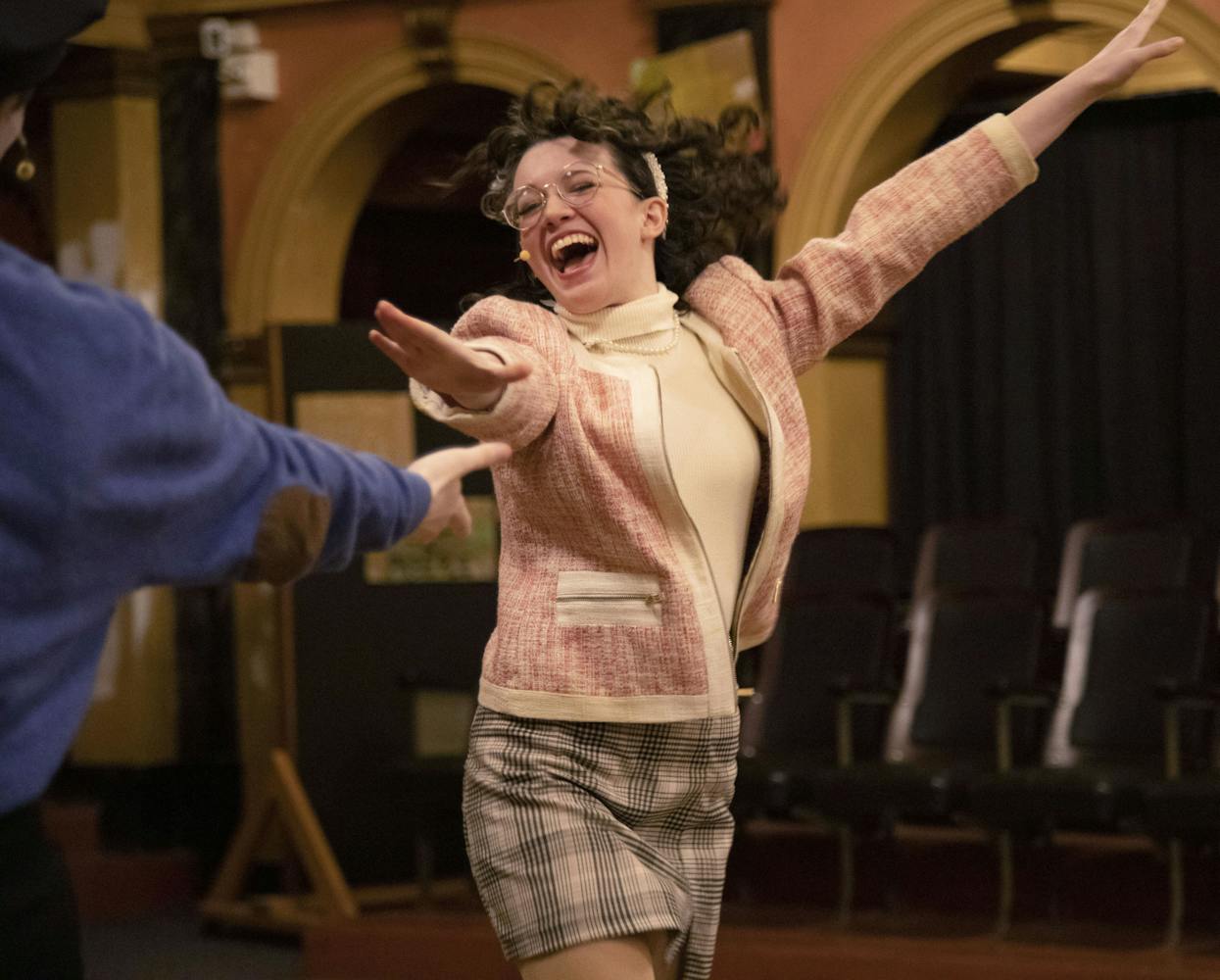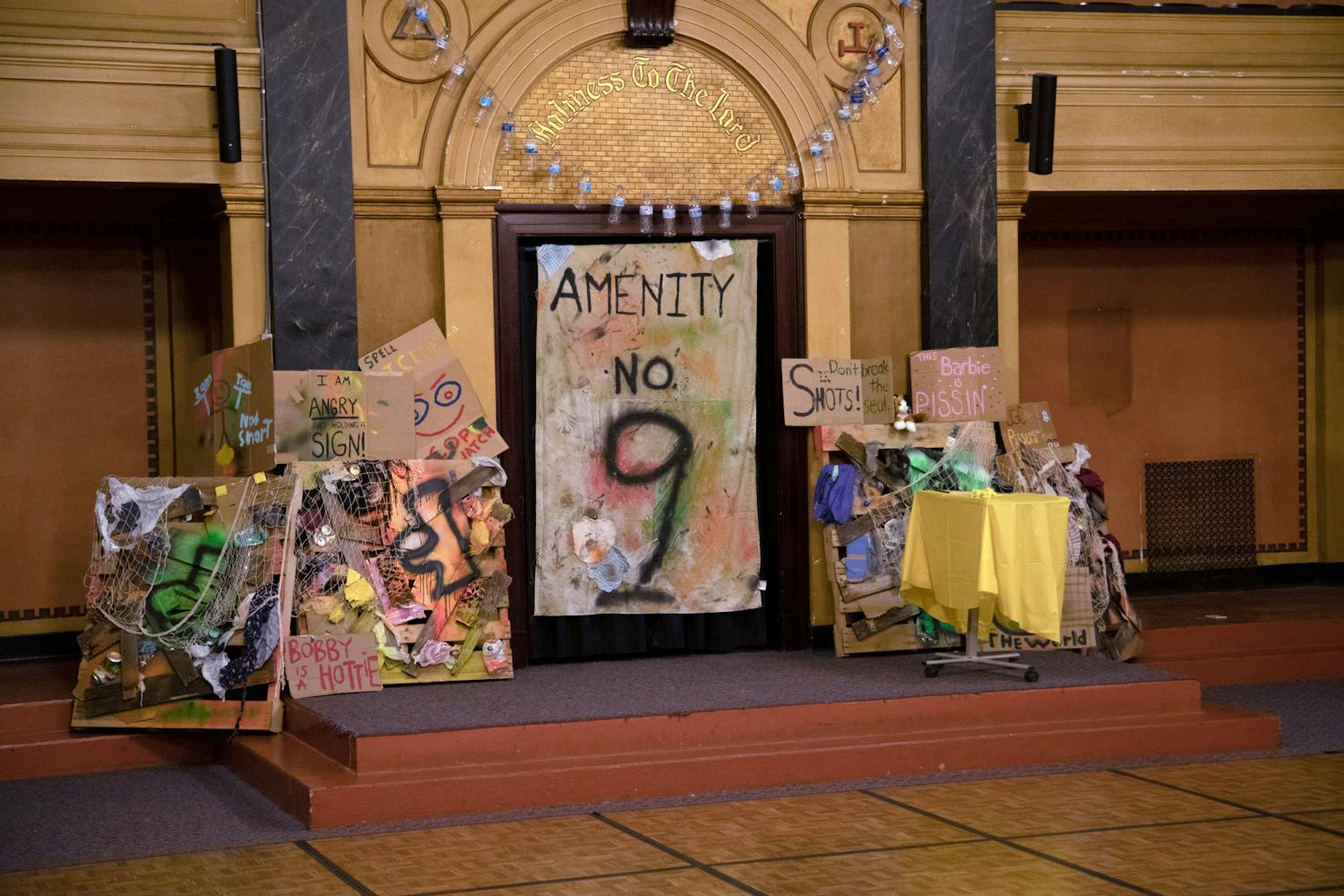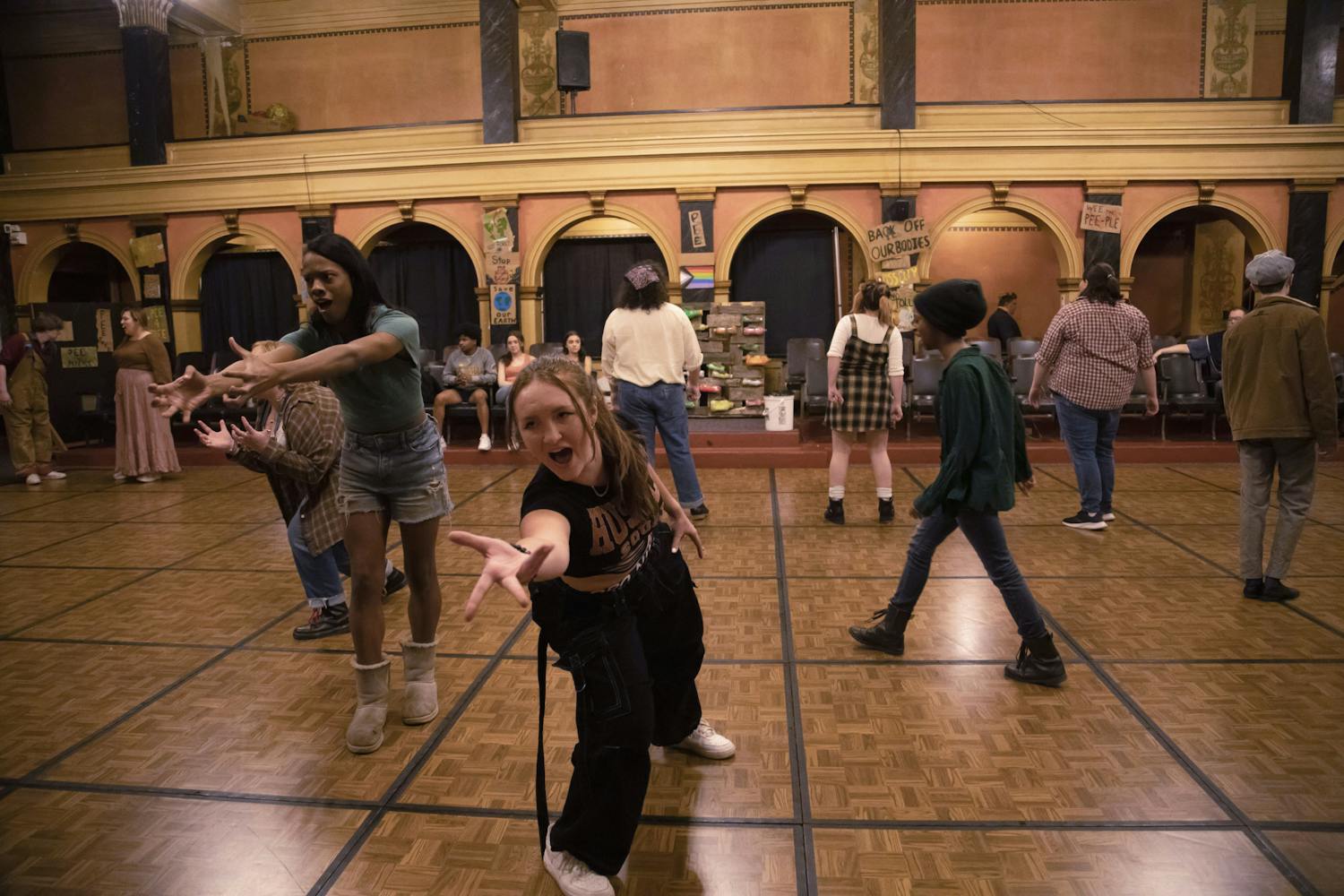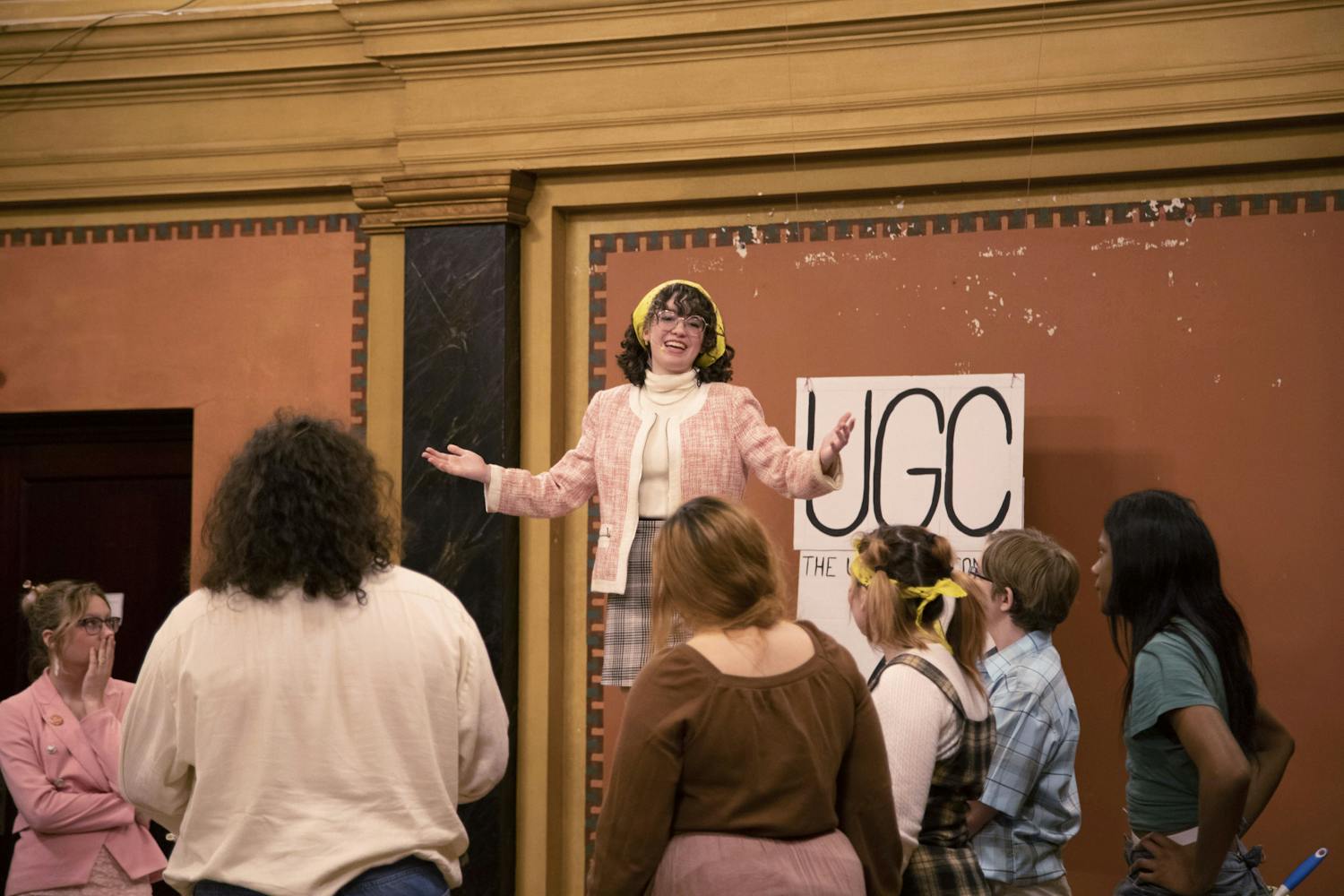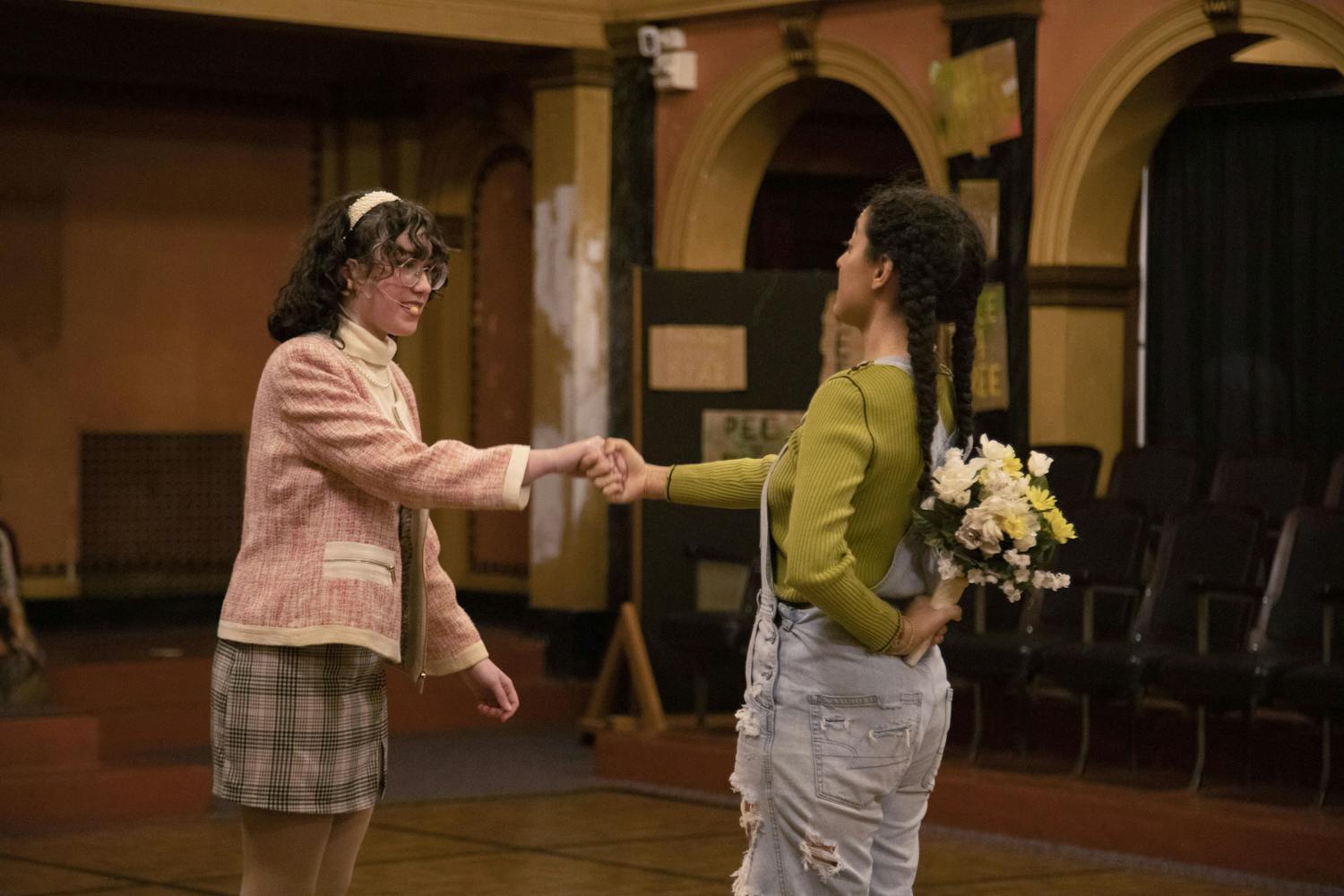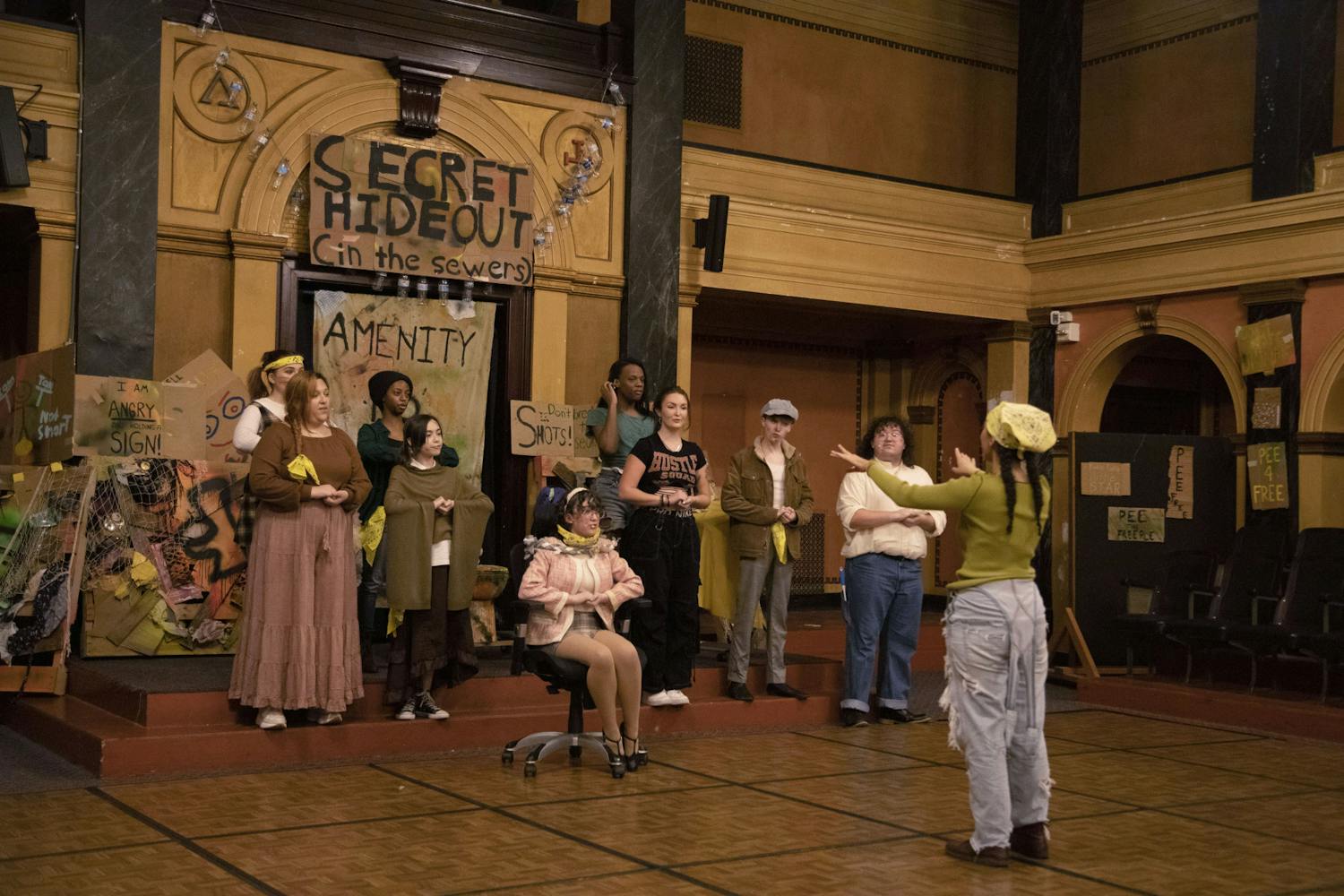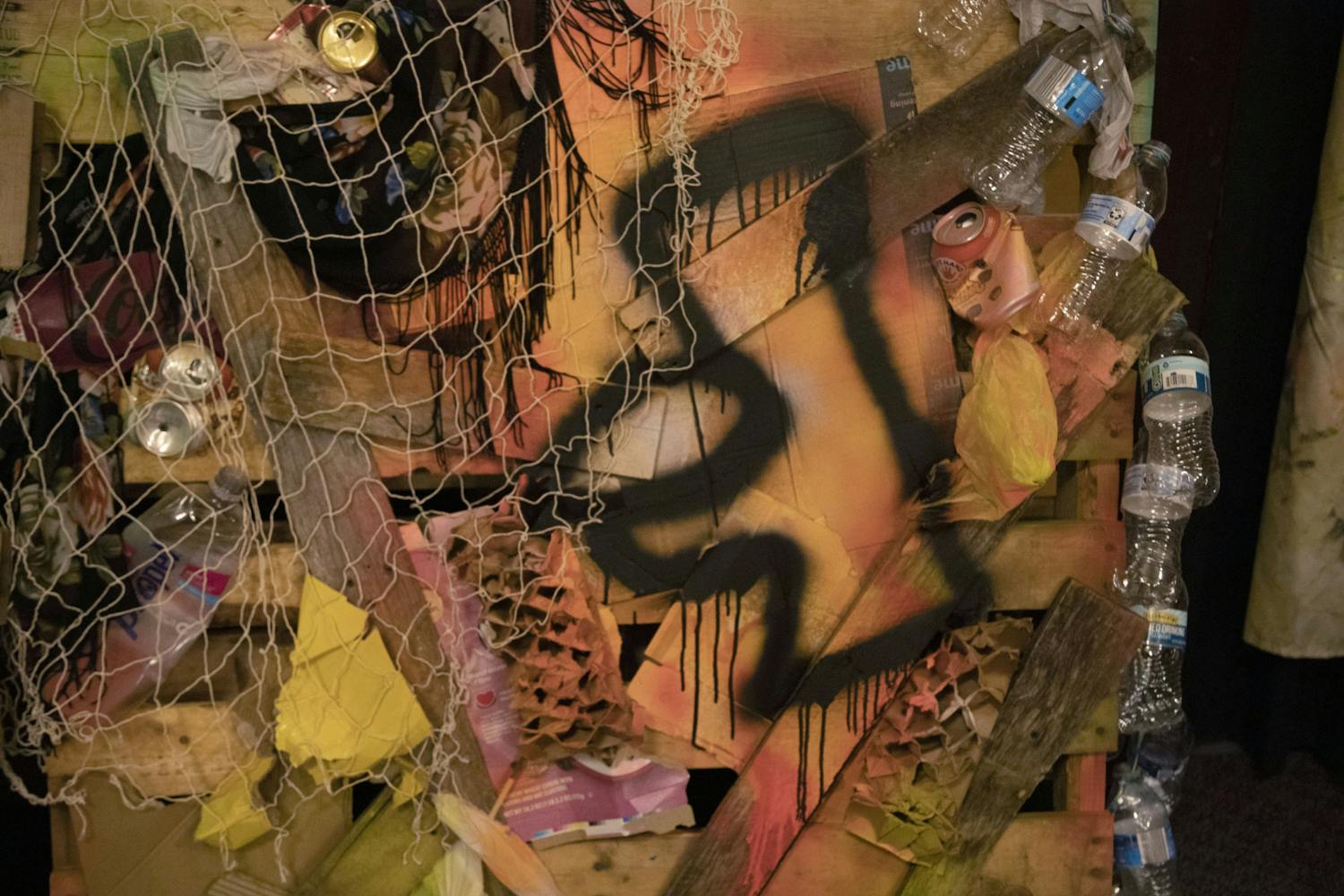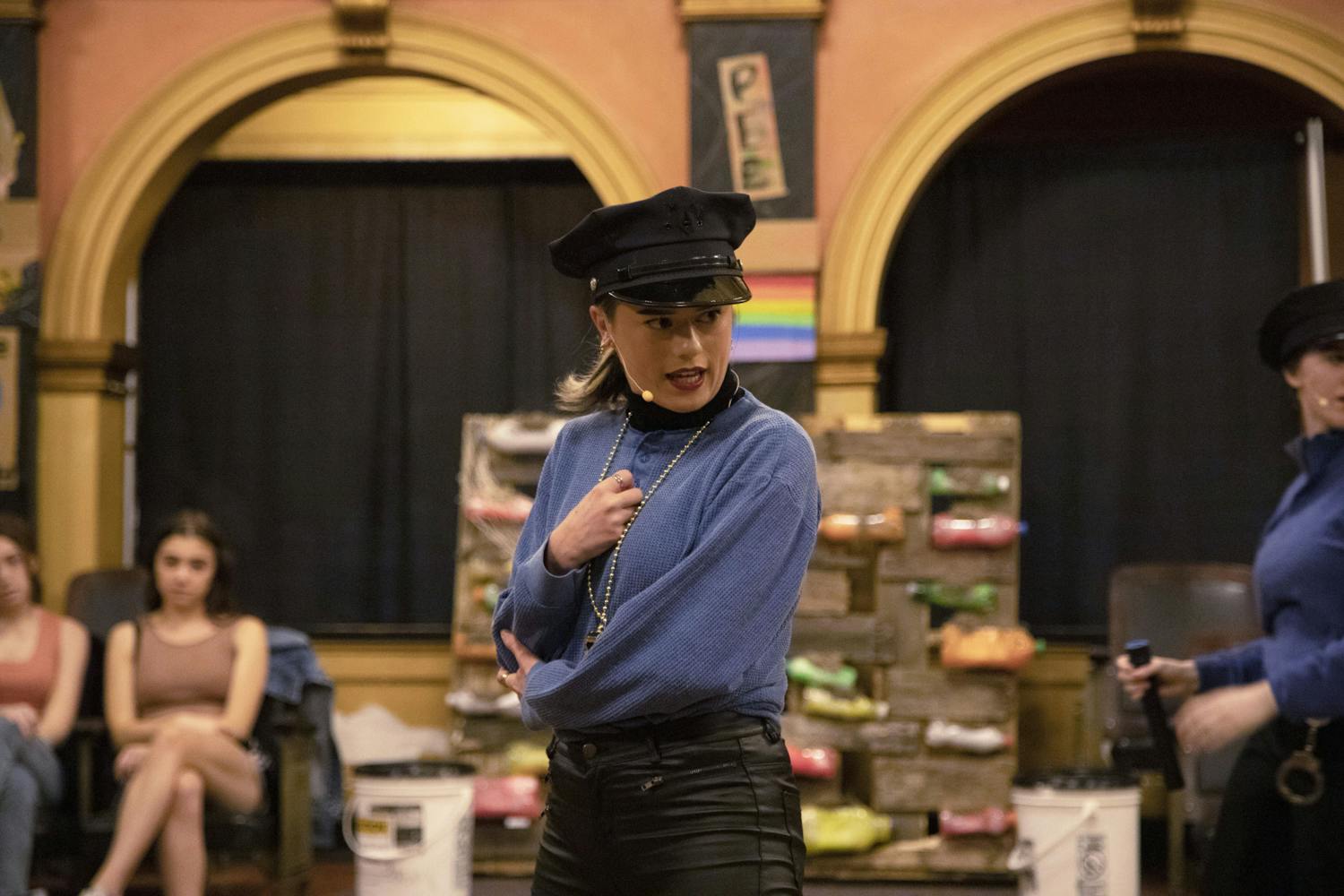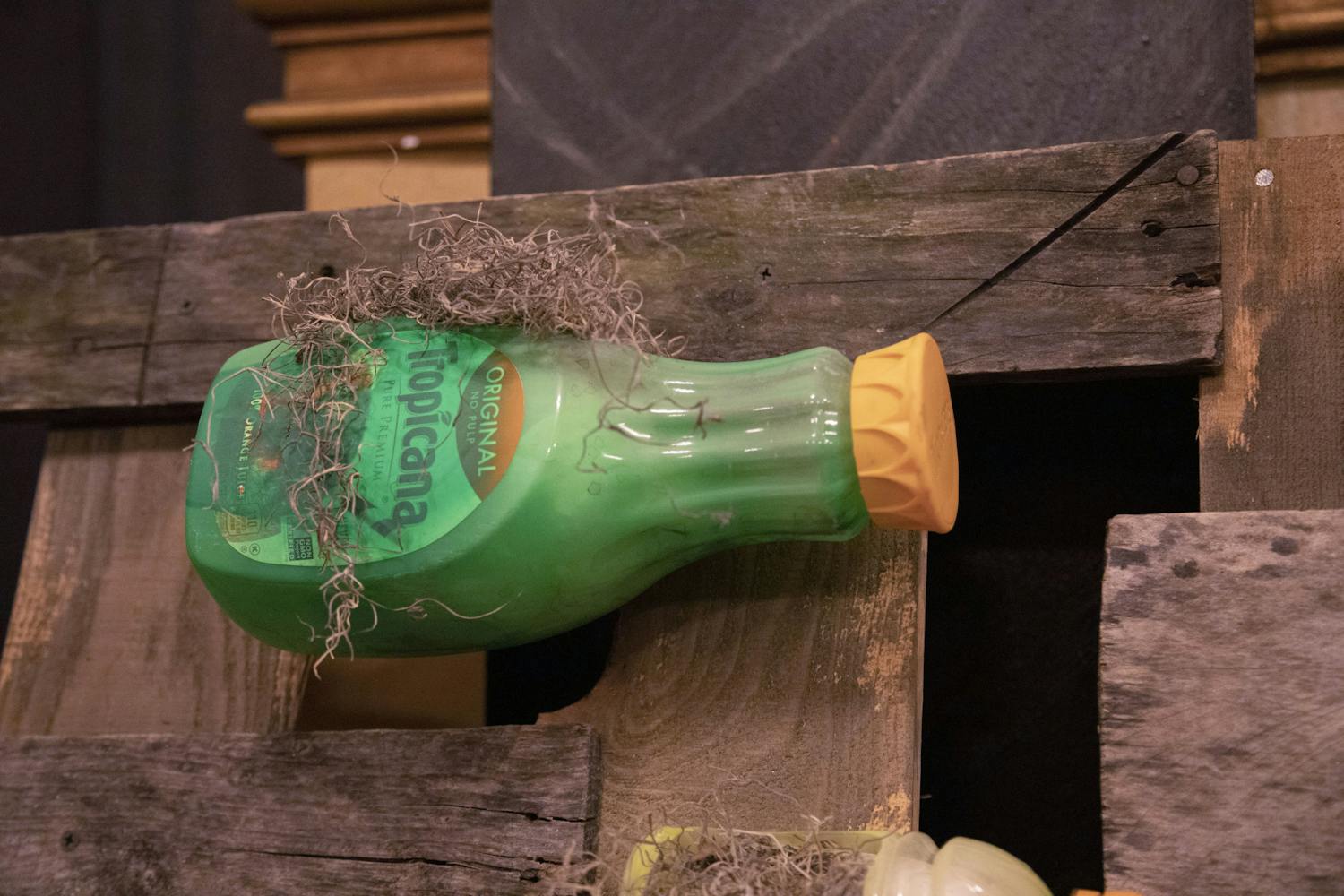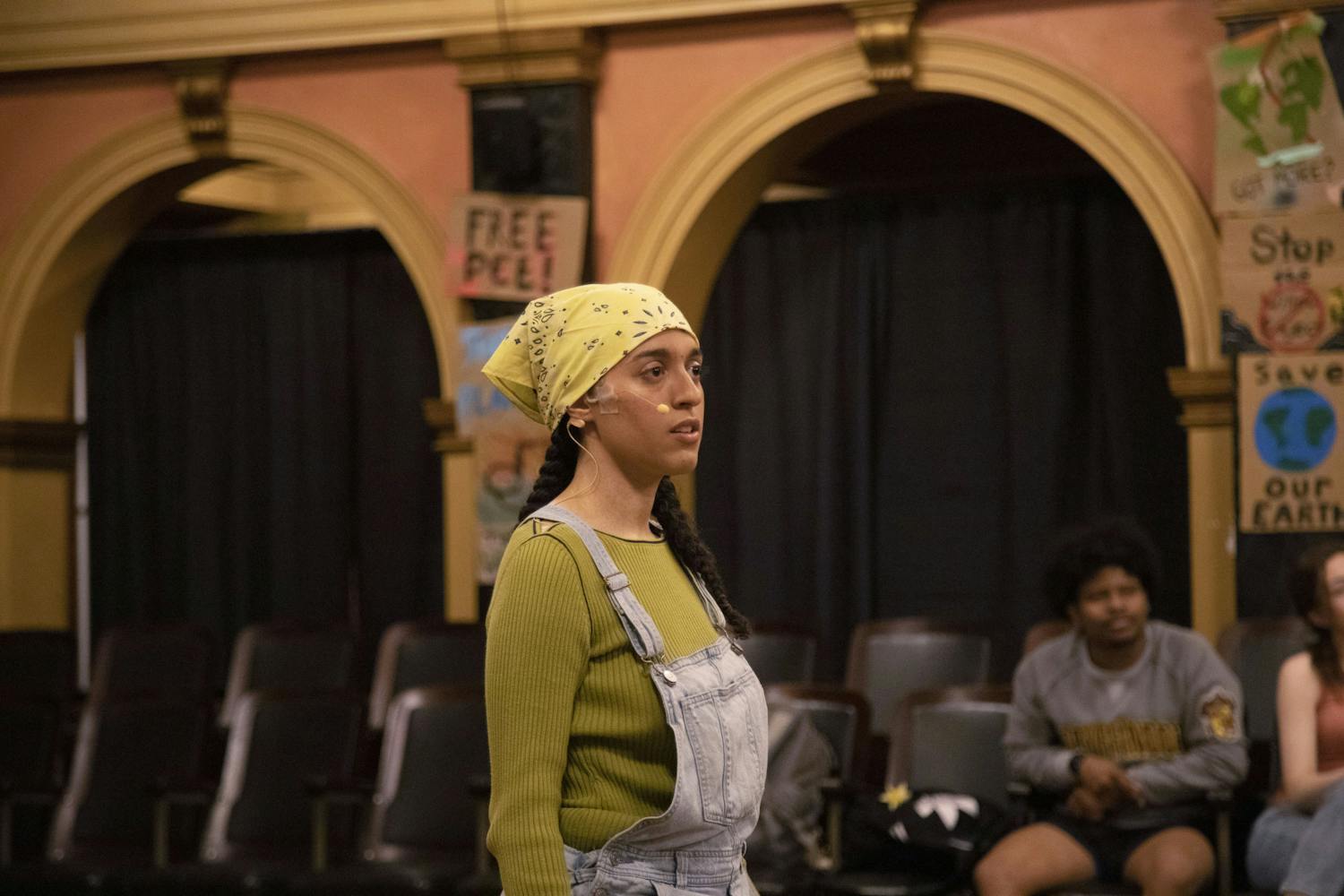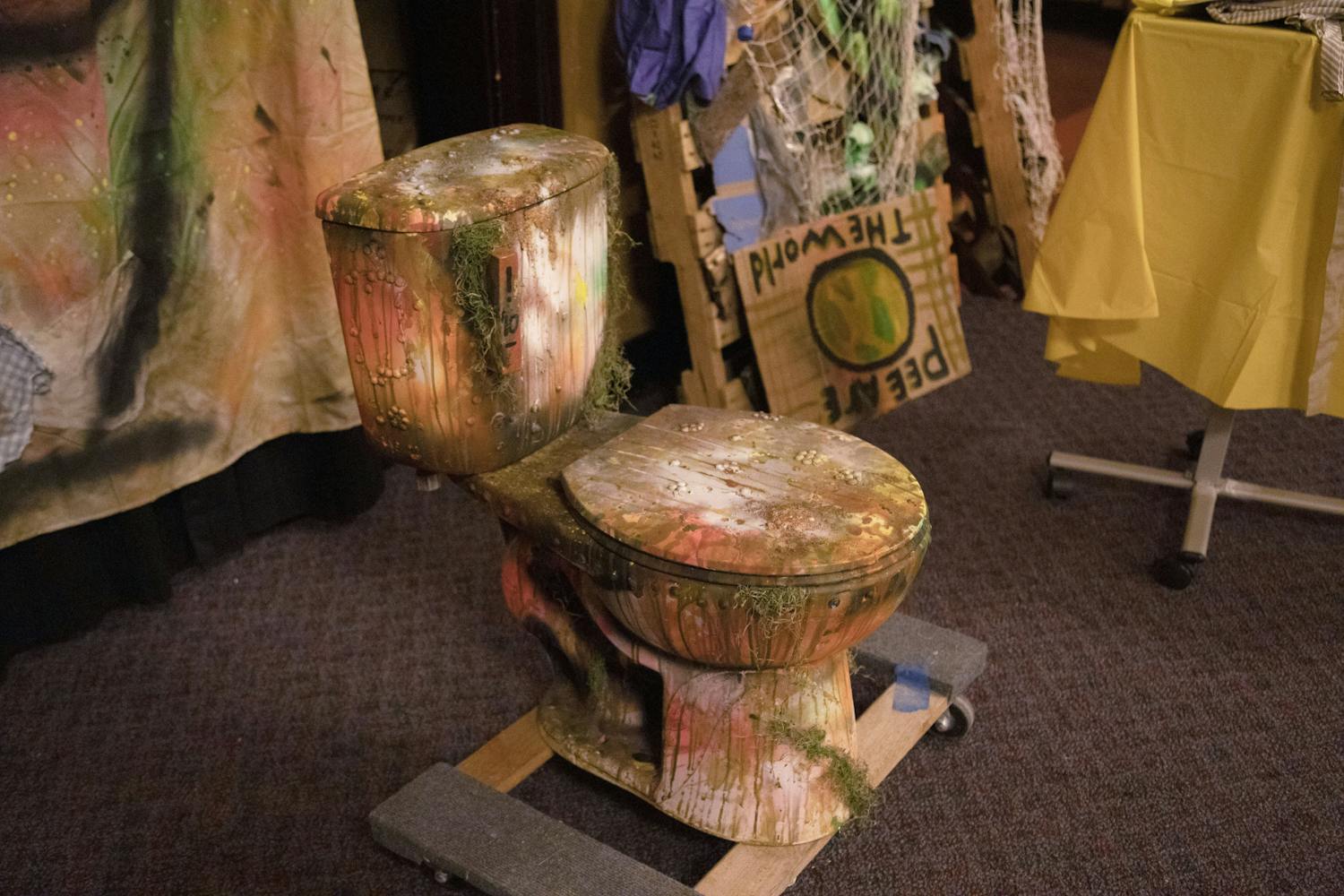“Take a breath in. Take a breath out. Set an intention.”
Fourth-year directing major Brynn Allison-Harty repeats the words to their cast at the start of rehearsal in between downward dog stretches and indie-pop music. They want the cast to think about the things they would like to improve during the rehearsal and think about the way they want the rehearsal to go.
For Allison-Harty, the intention was simple: tell a story about the climate crisis with an emphasis on sustainability in production.
Allison-Harty, like other students in the Ball State School of Theatre and Dance, is tasked with completing a capstone project at the end of their senior year. The project is often entirely student-run and is an accumulation of all of their education so far put on display.
Allison-Harty decided on the show “Urinetown: The Musical,” often referred to as just “Urinetown,” written by Greg Kotis and Mark Hollmann. Performances were held April 14 and 15 at Cornerstone Center for the Arts in Muncie.
“Urinetown” tells the story of a town suffering from a water drought that has spanned over 20 years. In attempts to conserve the water left, the government limits the water supply by only having one bathroom and having residents of the towns pay to use the bathroom.
The idea of the government having control of water is not fictional, nor is the idea of a polluted and drying up water supply.
According to the Associated Press (AP), the Biden administration is creating a plan for how tribes and communities that rely on the Colorado River can survive on a limited water source that is dwindling.
President Joe Biden, according to the AP, vetoed a congressional resolution April 6 that would have overturned protections on waterways.
The importance of a sustainable theatre production came to Allison-Harty in part from the growing climate crisis but as a way to enhance the storytelling of theatre.
“I think, oftentimes, we can use theatre as a tool for social change. At least that's why I'm in it,” Allison-Harty said. “It's why I study it. [The reason] why I direct in the first place is for kind of that creative control to script out how you can use your voice and this industry in this world. I know a lot of artists feel that way.”
One of the lead characters of the show, Bobby Strong, initiates a rebellion against the government. The show is filled with songs, jokes, love and urine-based jokes.
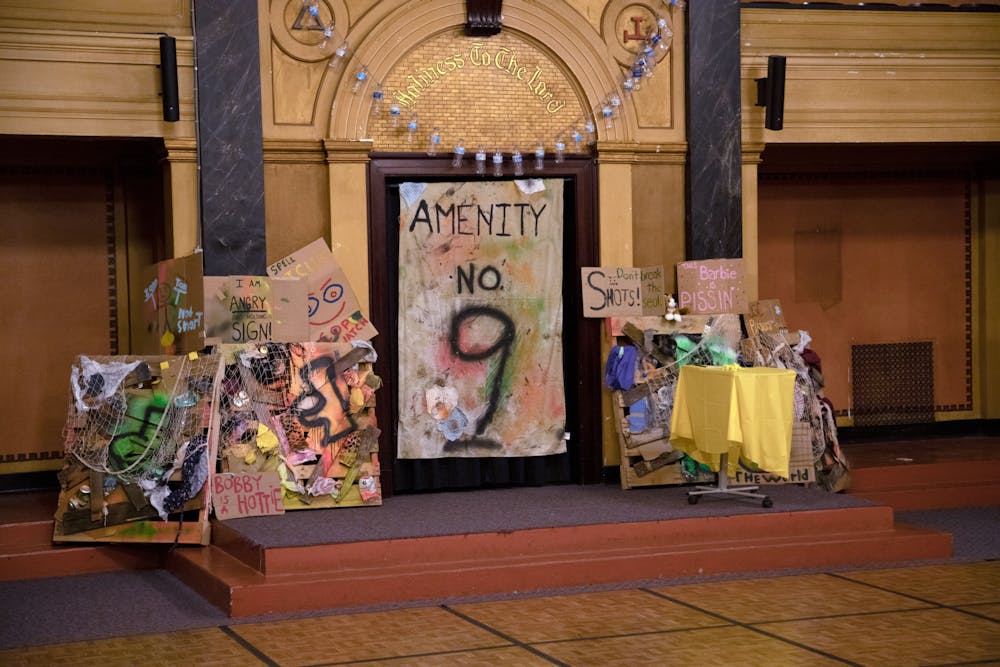
Lucía Vázquez, second-year musical theatre and Spanish major, played the role of Bobby Strong.
“He’s a good-hearted idiot in the best way possible,” Vázquez said. “He means so much good and wants to be a change for people and be the change he feels is needed, but it doesn’t work out.”
Officer Lockstock, along with Little Sally, are characters in the show, as well as narrators to give the audience context throughout the show.
Allison-Harty explained that in a lot of productions, Little Sally is played by an adult; however, she had the opportunity to play Little Sally in regional theater as a child, which was her first acting experience and a big inspiration behind choosing Urinetown as her Capstone.
Officer Lockstock, a role traditionally played by an older male, is played by third-year musical theatre major Annika Erickson, a self-proclaimed “5-foot-3 21-year-old girl.”
“I think it makes some of the character dynamics and relationships a little different and interesting,” Erickson said. “The relationship between Officer Lockstock and Little Sally is definitely different. There are some scenes that, because I’m a woman, won’t come off as creepy.”
Upon rereading the script at the start of the capstone, the part that Allison-Harty finds the most shocking is when the musical takes place: 2027.
“When I got my hands on the script and read it, and it felt so current, and then to read [Urinetown] and to be like, ‘[Climate change] approached us much quicker than we thought it would,’” Allison-Harty said.
Her creative team has made quite a few adjustments to try to keep the production as sustainable as possible.
“One of the super easy things that we don't think about is how much stage management's job sometimes is to just print things for 30 people in a cast, and when I'm looking at 30 people in a cast and a libretto and a script, I'm looking at thousands of sheets of paper,” Allison-Harty said. “If we can make the switch to digital, that is already something that is already a huge step forward and reducing our waste.”
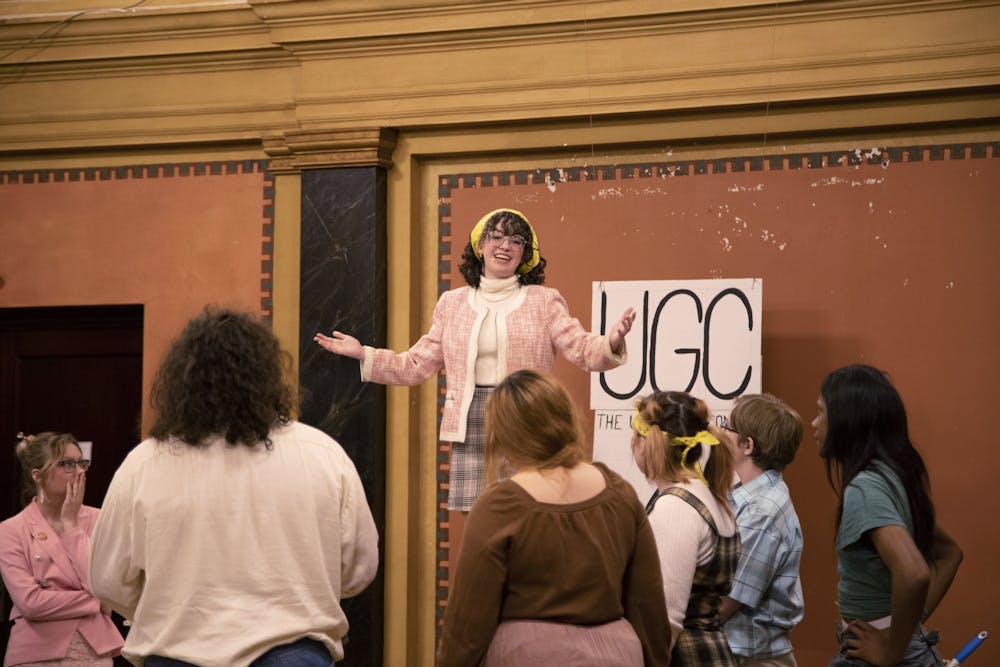
Actors in the show, like Erickson and Vázquez, are on board with the approach to sustainability.
“As much as I love it, theatre is not a very sustainable profession in the way we are going about it,” Vázquez said. “I think that shows like this and the things that Brynn and the rest of the team are doing [are great steps] in the right direction.”
Other approaches the creative team has taken include reusing old props and costumes from past Ball State theatre productions, thrifting and finding random toilets on the side of the road, Allison-Harty said.
“My academic advisor is emailing me and saying, ‘There was a toilet on the side of Lahody Meats, do you want to go get it?’ And I'd be like, ‘Yes, send me an address,’” they said.
The creative team for the show has also reached out to people on social media, growing a community following on their Instagram, asking followers, friends and family to donate props they need.
When the show is over, the creative team will recycle or donate the materials no longer needed.
“I feel that it was so important to approach this show knowing that we couldn't make a zero waste theatre project because that's just impossible, but at least making the effort to not [be] where the residents of this show live was part of our responsibility if we were going to tell this story,” Allison-Harty said.
The cast and creative team hopes that the show can work as a “wake up call,” Erickson said.
Contact Olivia Ground with comments at olivia.ground@bsu.edu or on Twitter @liv_ground_25.4

